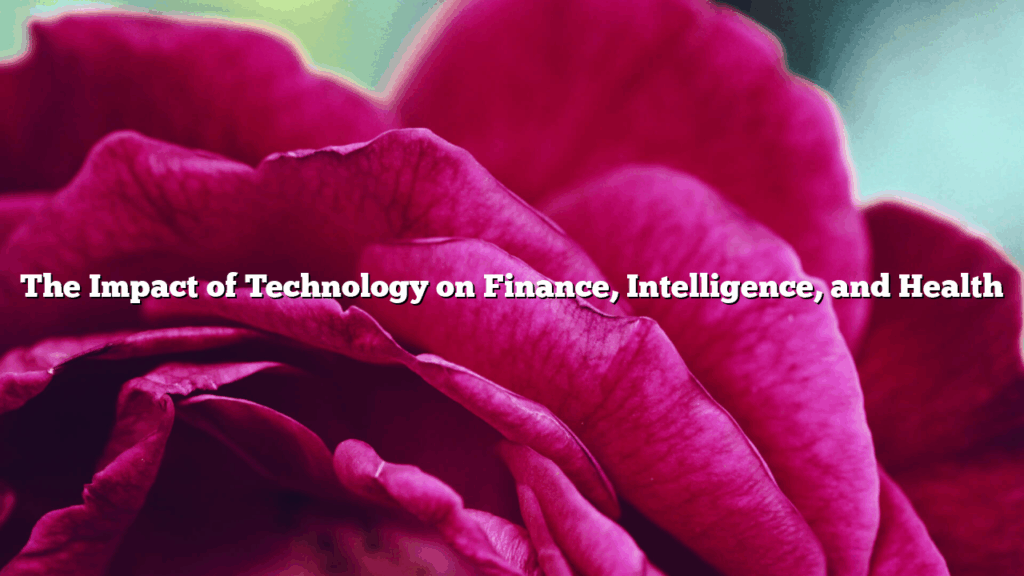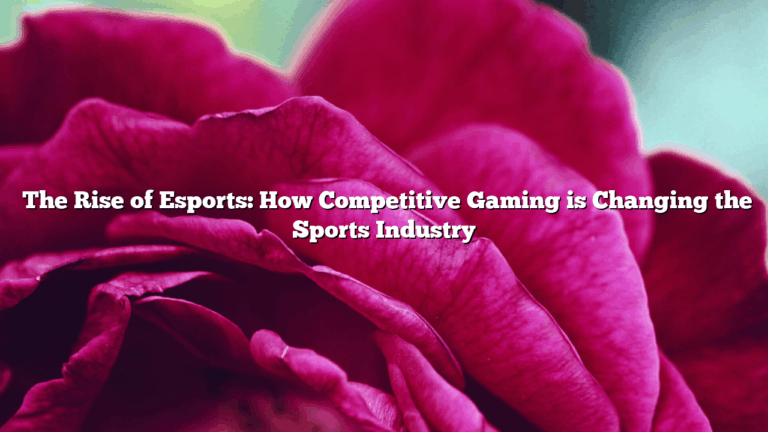
The Impact of Technology on Finance, Intelligence, and Health
In today’s rapidly advancing world, the integration of technology in multiple domains has become more significant than ever before. From finance to health care and AI, technological advancements are transforming the way we live and work. In this article, we will explore the intersection of technology with finance, intelligence, and health, and how each of these areas evolving in the modern world.
How Technology is Reshaping the Financial Landscape
The finance industry has undergone a radical transformation thanks to the advent of technology. In recent years, fintech has changed the way businesses and individuals manage their money, making banking services more accessible, efficient, and secure.
Blockchain, for example, has emerged as a powerful tool for securing transactions, and its potential extends far beyond cryptocurrencies like Bitcoin. With its ability to create secure, tamper-proof digital records, blockchain is being explored for use in financial contracts, digital currencies, and reducing fraud in financial systems.
In addition, the rise of artificial intelligence (AI) in finance is paving the way for more personalized and data-driven financial solutions. Robo-advisors, powered by AI, provide tailored investment advice based on real-time data and risk profiles, making wealth management services available to a wider audience at lower costs.
Artificial Intelligence: A New Era of Intelligence
AI is often touted as the next frontier in intelligence, as it enables machines to perform tasks that previously required human cognition. From natural language processing to image recognition, AI is capable of tasks that demonstrate its ability to learn, adapt, and even exhibit creativity.
In the realm of healthcare, AI-powered diagnostic tools are enabling doctors to make more accurate diagnoses, predict potential health risks, and develop personalized treatment plans. gawang69 is also being used in drug discovery and genomics, helping to uncover new therapies for diseases that were once considered untreatable.
Moreover, AI is helping to bridge the gap between human intelligence and machine learning. In fields such as neuroscience, AI is being used to model and understand the complexities of the human brain, bringing us closer to creating machines that can think and reason in ways that mimic human cognition.
Health and Technology: Transforming the Healthcare System
The healthcare sector has also experienced a dramatic transformation due to technological advancements. From telemedicine to personalized health tracking devices, technology has made healthcare more efficient and accessible than ever before.
Telemedicine, for example, has become an essential tool, especially in rural areas or regions with limited access to healthcare facilities. Through virtual consultations, patients can receive medical advice and prescriptions without the need for an in-person visit. This not only improves access to healthcare but also reduces the strain on overburdened healthcare systems.
Wearable technology is also playing an increasingly important role in healthcare by allowing individuals to monitor their health in real-time. Devices such as fitness trackers, smartwatches, and even smart clothing provide continuous data on various health metrics, helping individuals stay informed and make better lifestyle choices. Additionally, these devices are aiding in early disease detection and prevention.
AI is also having a profound impact on healthcare, as it helps doctors analyze patient data, predict health risks, and provide personalized treatment plans. By integrating AI with electronic health records (EHRs), doctors can have real-time access to patient histories, making diagnoses faster and more accurate.
Conclusion
In conclusion, the integration of technology in finance, intelligence, and health has brought about unprecedented changes that are reshaping the world as we know it. The future holds great promise as technology continues to advance, offering new opportunities for individuals and businesses alike. As we move forward, it is essential to stay informed and adaptable to these changes, embracing the possibilities they bring while also addressing the challenges they present.



